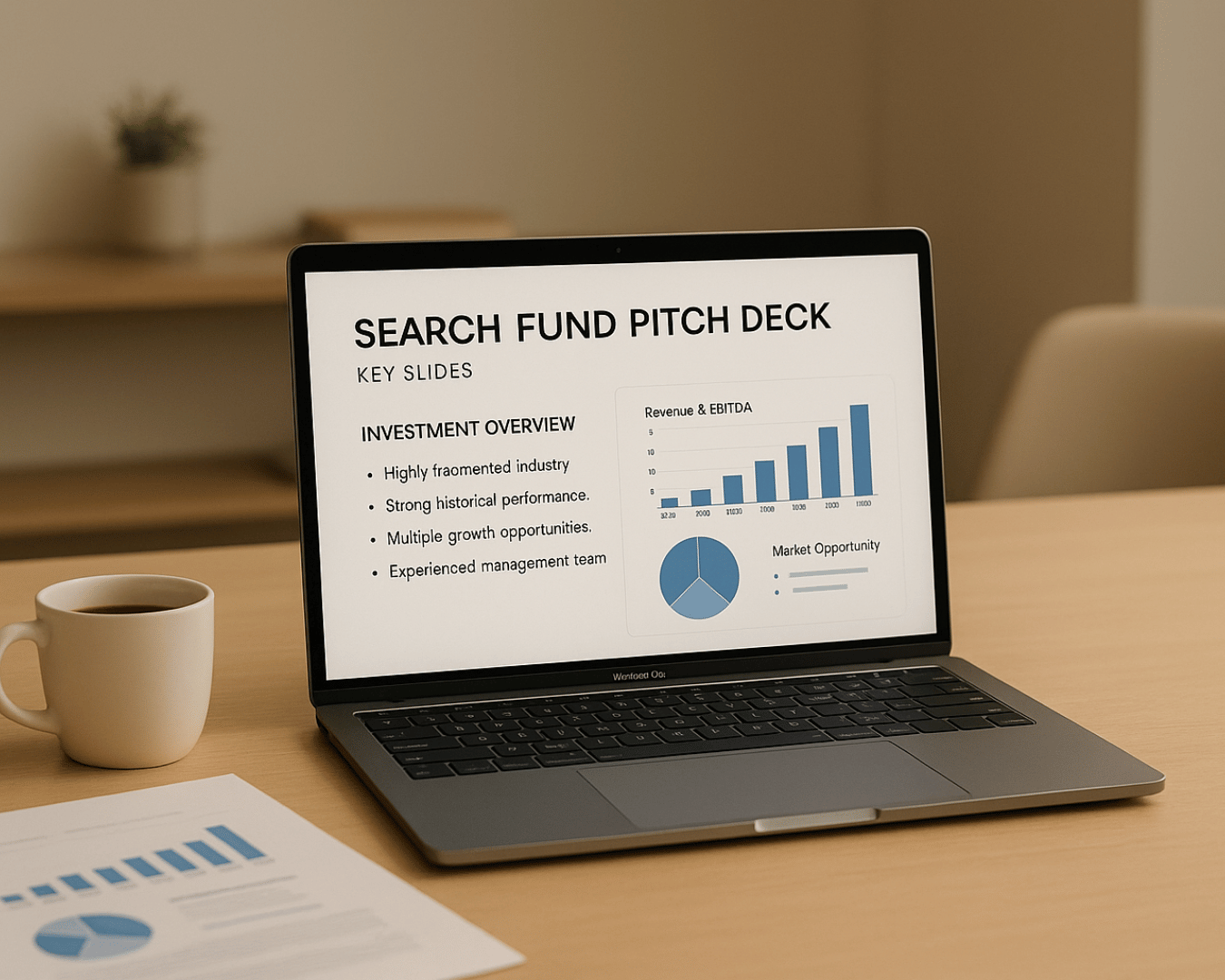Securing an SBA loan for a business acquisition can be overwhelming due to complex requirements, extensive paperwork, and strict timelines. SBA loan brokers simplify this process by connecting buyers with the right lenders, managing documentation, and addressing acquisition-specific challenges. Here's what you need to know:
- Lender Matching: Brokers identify lenders suited to your industry, deal size, and financial needs.
- Loan Program Guidance: They explain SBA 7(a) and 504 loans, helping structure deals to meet compliance and maximize benefits.
- Problem-Solving: Brokers resolve issues like valuation disputes, debt coverage concerns, and seller transition risks.
- Streamlined Process: They use technology to improve communication, track progress, and avoid delays.
How an SBA Loan Broker Gets You Funded Faster
What SBA Loan Brokers Do
SBA loan brokers act as intermediaries in the world of SBA financing, making the process of securing loans for acquisitions smoother. They connect buyers with the right lenders, clarify the complexities of loan programs, and tackle the documentation and compliance issues that often arise. Below, we’ll dive into how brokers handle these responsibilities.
Connect Buyers with Lenders
Finding a lender for an SBA acquisition loan involves more than just identifying banks offering SBA products. Each lender has its own preferences, risk tolerance, and processing capabilities, which can influence the success of a deal. For instance:
- SBA-preferred lenders have the authority to approve loans faster but are selective about the deals they take on.
- Community banks may be more accommodating for local businesses.
- Larger institutions often prefer deals where loan amounts exceed $1 million.
Brokers maintain relationships with a wide range of lenders and understand their specific criteria. They know which lenders favor certain industries, such as restaurants, which avoid deals involving heavy real estate, and which can handle more complex ownership structures. This insight prevents buyers from wasting time on applications that may harm their credit.
The matching process goes beyond just meeting basic qualifications. Brokers consider factors like debt service coverage ratios (DSCR), industry experience, and even geographic preferences. They also have experience navigating unique situations, such as seasonal businesses, franchise requirements, and seller financing terms.
Explain SBA Loan Programs
When it comes to SBA loans, SBA 7(a) and SBA 504 loans are the two primary options for acquisitions, each suited to different needs.
- SBA 7(a) loans: These loans can cover up to 90% of the acquisition cost, with amounts up to $5 million. They’re suitable for asset purchases, stock purchases, and working capital. However, they come with strict rules. For example, seller financing is capped at 25% of the purchase price and must remain on standby for the life of the loan.
- SBA 504 loans: These are designed for acquisitions involving real estate or significant equipment purchases. They offer long-term, fixed-rate financing but require a more complex structure. The borrower typically contributes 10% down, while a bank provides 50% through a conventional loan, and a Certified Development Company (CDC) finances the remaining 40% through an SBA debenture.
Brokers help buyers navigate these programs, ensuring deals are structured to maximize benefits while staying compliant. They know how to allocate purchase prices between eligible and ineligible expenses, structure seller financing to meet SBA requirements, and prepare the extensive documentation these loans demand.
Handle Acquisition-Specific Problems
Acquisitions come with unique challenges, and brokers play a key role in resolving them. For instance, valuation discrepancies can stall deals. Lenders often require professional appraisals and may question inflated valuations based on industry multiples or cash flow analyses.
Brokers also address issues with debt service coverage ratios (DSCR). In acquisitions, DSCR calculations must account for the business’s historical performance, expected improvements under new ownership, and the debt service requirements of the loan. Brokers craft financial projections to meet these requirements while keeping them realistic.
Another hurdle is seller transition risks. Lenders often worry about customer retention, operational continuity, and undisclosed liabilities after a change in ownership. Brokers help mitigate these concerns by structuring transition periods, securing training agreements, and including non-compete clauses in the deal.
Other challenges include environmental assessments, lease assignments, and regulatory compliance. For example, acquiring a restaurant might require health department approvals, while a manufacturing business could need environmental site assessments. Brokers align these requirements with the loan process to avoid delays.
Lastly, the choice between asset and stock purchases adds another layer of complexity. Asset purchases are generally preferred by lenders because they limit liability exposure, but they require detailed allocation of the purchase price across asset categories. Stock purchases, while simpler in structure, carry more risk and often come with stricter lender requirements and higher down payments. Brokers guide buyers through these decisions to ensure the best outcomes.
Finding and Structuring Financing
Once brokers have a clear understanding of what an acquisition requires, the next step is securing and structuring the right financing package. This isn’t just about finding a lender willing to approve a loan - it’s about navigating terms, negotiating conditions, and crafting creative solutions when traditional methods don’t work. By leveraging their role as connectors between buyers and lenders, brokers play a key part in shaping deals that are more likely to get approved.
Find Competitive Financing Options
SBA loan terms and pricing can vary widely depending on the lender. Brokers tap into their networks to secure fee structures and interest rates that best fit the needs of each transaction.
Through these networks, brokers also identify lenders with expertise in specific industries, ensuring that the underwriting aligns with the unique aspects of the deal. Timing is another critical factor - brokers coordinate rate locks to secure favorable terms that align with the closing schedule of complex acquisitions. Once competitive financing options are in place, brokers focus on structuring the deal to address any funding gaps.
Structure Complex Deals
When traditional financing falls short, brokers get creative. They use a mix of funding sources to meet SBA compliance requirements and address challenges like limited down payments or misaligned seller terms.
One common approach is seller financing, where the seller provides a loan to the buyer that complements the primary financing. For buyers struggling to cover the down payment, brokers might arrange equity injections by connecting them with equity partners or investors willing to contribute in exchange for ownership stakes.
Earnout structures are another tool. These arrangements tie additional payments to the business’s future performance, helping bridge valuation differences between buyers and sellers without requiring the entire purchase price upfront. By combining traditional loans with these tailored solutions, brokers can lower borrowing costs and improve cash flow management.
Match Deals with Lender Requirements
Every SBA-approved lender has its own risk preferences and criteria that go beyond basic qualifications. Successful brokers keep detailed profiles of these requirements, allowing them to match deals with the right lenders and improve approval chances.
For example, some lenders specialize in certain industries due to their familiarity with specific cash flow patterns or risk factors. Others may focus on unique operational challenges or limit their lending to particular geographic areas. Local community banks, for instance, might offer more flexible terms for businesses in their regions, while larger lenders often focus on deals within certain size ranges.
Factors like deal size, collateral expectations, and debt service coverage requirements also vary between lenders. By understanding these parameters upfront, brokers can tailor financial presentations to meet lender expectations, improving the likelihood of approval and streamlining the entire process. This careful matching ensures that every part of the financing aligns with both the buyer’s needs and the lender’s criteria.
Solving Common SBA Loan Problems
Even when you’ve found the perfect lender and structured financing seems solid, SBA loan transactions can still hit snags. These hurdles - ranging from missing documentation to timing conflicts - can derail a deal if not handled properly. That’s where brokers come in. With their expertise, they anticipate potential issues, solve problems as they arise, and keep deals on track. Let’s take a closer look at how brokers tackle these challenges.
Handle Documentation and Compliance
SBA loans require a mountain of paperwork, and it has to meet both federal guidelines and the specific requirements of the lender. For buyers, especially those navigating complex acquisitions or unusual business setups, the process can feel overwhelming.
Brokers simplify this by using detailed checklists that cover everything - personal financial statements, tax returns, business licenses, environmental assessments, and more. They ensure every document aligns with lender expectations and even tailor financial projections to meet underwriting standards.
When documentation gaps appear, brokers act swiftly. For instance, if a buyer’s financial statement is missing key asset details, brokers collaborate with accountants or financial advisors to fill in the blanks. In cases involving intricate ownership structures, they work alongside attorneys to create clear organizational charts and ownership records that satisfy lender requirements.
Compliance is another area where brokers shine. SBA regulations change frequently, and lenders often interpret them differently. Brokers stay on top of these updates, ensuring all documentation aligns with the latest rules. They also understand how individual lenders apply compliance standards, allowing them to fine-tune submissions to meet specific expectations.
Speed Up Underwriting Process
Even with all the paperwork in order, underwriting delays can still throw a wrench in the process. These delays can be especially problematic if sellers are working with tight timelines or competing offers. Brokers use their knowledge and relationships to move things along without cutting corners.
Proactive communication is key. Instead of waiting for underwriters to ask for more information, brokers anticipate their needs, provide comprehensive packages upfront, and maintain regular check-ins to address any questions immediately. This approach prevents minor issues from becoming major delays.
Brokers also understand the inner workings of different lenders. Some banks process applications faster at certain times of the month or quarter, while others have underwriters who specialize in specific types of deals. By leveraging this insight, brokers strategically route applications and set realistic timelines for all parties.
When underwriting hits a snag, brokers step in to resolve the issue. For example, if an underwriter is concerned about the risks in a particular industry, brokers might present additional market research or comparable transactions to demonstrate stability. If cash flow is a concern, they can restructure payment terms or provide extra collateral documentation to strengthen the application.
Manage Seller Transition Issues
The human side of SBA loans - especially during the final stages - can create its own set of challenges. Seller-related issues often crop up at the last minute, threatening to derail the deal. Brokers play a crucial role in managing these situations to protect both buyers and lenders while keeping the process moving.
Seller financing is a common sticking point. When a deal includes seller notes, brokers ensure the terms comply with SBA standby requirements and that all documentation is properly structured. They work with attorneys to draft agreements that meet lender standards while also addressing the seller’s concerns.
Key employee retention is another challenge. Underwriters worry about business continuity if key personnel might leave during the ownership transition. Brokers help secure retention agreements and create transition plans that demonstrate operational stability.
Changes in financial performance during the loan process can also jeopardize approval. If a business’s numbers take a dip, brokers help document the reasons, provide updated projections, and, if necessary, adjust deal terms to reflect the current situation while staying within SBA guidelines.
Finally, brokers handle uncooperative sellers during due diligence. If a seller becomes unresponsive or hesitant to share additional information, brokers use their negotiation skills to address concerns about confidentiality or business disruption while keeping the deal on track.
Navigating the transition period requires juggling countless moving parts. Brokers act as the central hub, ensuring everyone stays aligned on timing, requirements, and expectations. Their experience with similar deals allows them to foresee potential problems and take steps to avoid them, safeguarding the integrity of the transaction.
sbb-itb-a3ef7c1
Using Technology for SBA Loan Success
In the world of SBA financing, technology is reshaping how brokers, lenders, and borrowers navigate the process. By incorporating digital tools, modern brokers can simplify everything from submitting applications to tracking loan progress and closing deals. These tools not only save time but also improve precision, transparency, and the likelihood of success.
AI-Driven Platforms for Deal Management
AI-powered platforms are transforming deal management by automating critical tasks. For instance, they can streamline financial verification by linking directly with financial institutions to confirm key metrics. These platforms also feature dashboards that help brokers monitor document submissions and flag potential delays, allowing them to address issues before they escalate.
Improved Communication and Data Management
Technology has revolutionized communication and data sharing during SBA loan transactions. Secure data rooms have replaced cumbersome email chains, offering a centralized, secure location for all parties to access necessary documents. Automated NDAs make the early stages of deal exploration faster, enabling interested parties to sign agreements digitally and gain quick access to confidential information.
Borrowers now enjoy real-time updates on their loan progress through client portals, where they can submit applications, upload documents, and track their status through user-friendly dashboards. Mobile apps extend this convenience, allowing users to link bank accounts, upload files, and access deal information from anywhere. Digital checklists and automated reminders ensure that deadlines for document submissions are met, while integrated e-signature tools make signing documents fast and secure, no matter the device. With real-time data and seamless communication, brokers can quickly adapt deal structures to align with lender requirements, creating a more efficient and responsive process.
Traditional vs. Technology-Driven Brokers
The contrast between traditional and tech-savvy brokers is stark. Traditional brokers often rely on manual methods like phone calls, email attachments, and physical paperwork. In comparison, technology-driven brokers leverage cloud-based platforms, real-time dashboards, and automated notifications to streamline document handling and communication. These advancements lead to faster processing, fewer errors, and greater transparency throughout the transaction.
Practical Tips for Entrepreneurs and Investors
Working with the right SBA loan broker can make all the difference in securing financing quickly and on favorable terms. A well-prepared approach can streamline the process, while poor planning often leads to delays or missed opportunities. Here’s how to make the most of your broker relationship and use technology to close deals effectively.
Choose the Right SBA Loan Broker
Specialized SBA acquisition brokers bring a level of expertise that general business lenders simply can't match. These professionals are well-versed in the unique challenges of acquisition financing, such as navigating seller transitions and structuring complex deals that may require creative solutions.
When selecting a broker, focus on their experience with acquisitions. Look for brokers who use advanced, AI-driven platforms to speed up approvals and reduce errors. Don’t hesitate to ask for specifics - recent deal statistics, average timelines, and client references can give you a clear picture of their capabilities. If a broker struggles to provide this information, it might be a red flag.
Modern brokers who embrace technology can streamline the entire process, leading to faster approvals and fewer complications during your transaction.
Prepare Financial Documentation
After choosing a specialist broker, your next step is ensuring your financial documentation is complete and well-organized. To be ready when the right opportunity comes along, gather three years of financial records for both your personal finances and the business you’re acquiring.
For the target business, compile essential documents such as tax returns, profit-and-loss statements, balance sheets, business debt schedules, and interim financial statements if the fiscal year doesn’t match the calendar year. These records allow lenders to evaluate the business’s financial health and cash flow.
Lenders will also assess your creditworthiness, business experience, and equity contribution when determining loan approval and terms. Be prepared with personal tax returns from the past three years, financial statements for all guarantors, and proof of a strong credit history.
Pay close attention to the equity injection requirement. You’ll need to provide evidence of your down payment funds, which could come from personal savings, investor contributions, or business assets. If collateral is needed, ensure you have documentation for assets like real estate, equipment, cash, inventory, or accounts receivable.
Keep in mind that you can’t complete the full SBA application until you’ve engaged a seller and secured a Letter of Intent or Purchase Agreement. However, having all your documents ready enables your broker to start early discussions with lenders and position your deal attractively.
Use Platform Features Effectively
Beyond selecting the right broker and preparing your documentation, leveraging modern platforms can help you manage the acquisition process more efficiently. For example, AI-powered valuation tools can provide instant, data-backed business valuations based on comparable sales and market trends, ensuring you make competitive offers without overpaying.
Automated deal sourcing tools can help you quickly identify and connect with potential sellers, including off-market opportunities that often face less competition. Features like email deal forwarding and centralized import hubs allow you to consolidate opportunities from various sources into one location.
Secure data rooms with permission controls simplify due diligence and document sharing among sellers, lenders, and advisors. These tools minimize the risks and inefficiencies of email attachments while providing audit trails for compliance.
Pre-qualification tools, integrated with financial verification systems like Plaid, allow brokers to assess your financing capacity early in the process. This ensures you’re matched with suitable lenders and can focus on realistic opportunities.
Pipeline management tools are especially valuable when juggling multiple opportunities. Use them to track communications, monitor due diligence progress, and coordinate with your broker and advisors. This way, you can stay on top of key details during complex negotiations.
Finally, take advantage of educational resources and market reports available on these platforms. These insights can refine your valuation and financing strategies, helping you craft more competitive offers.
Conclusion: Navigate SBA Loan Deals with Confidence
Securing SBA financing becomes far more approachable when you have skilled brokers in your corner. With their strong lender connections and expertise in structuring deals, these professionals can simplify the often-complicated SBA lending process. They know how to align your deal with the right lenders, giving you the confidence to move forward.
Today's technology also plays a key role in making the process smoother. Modern platforms equipped with tools like AI-powered valuations and automated sourcing not only speed up approvals but also help minimize errors. When your broker integrates these tools into their workflow, you benefit from quicker processing and better deal outcomes.
Having comprehensive and up-to-date financial documentation is another critical factor. It shows lenders that you're a serious buyer and, when paired with digital tools, helps fast-track approvals. This allows your broker to act quickly when the perfect opportunity arises.
FAQs
What’s the difference between SBA 7(a) and SBA 504 loans, and how can a broker help me choose the right one for my business acquisition?
SBA 7(a) loans stand out for their flexibility, offering funding of up to $5 million with repayment terms extending up to 25 years for real estate. These loans are often used for various purposes, such as acquiring a business, covering working capital needs, or purchasing equipment. Meanwhile, SBA 504 loans are tailored for financing long-term fixed assets, like commercial real estate or substantial equipment purchases. These loans involve a partnership between a private lender and a Certified Development Company (CDC).
Working with a broker can make the entire process much smoother. They’ll assess your business acquisition goals, financial circumstances, and the details of your specific deal. By doing so, they can recommend the loan program that best suits your needs and handle the complexities of the SBA loan process for you.
How do SBA loan brokers handle challenges like valuation disputes and seller transition risks during a business acquisition?
SBA loan brokers play an important role in tackling challenges like valuation disagreements and risks tied to seller transitions. Their expertise and connections in the industry make them well-equipped to handle these complexities.
For valuation disagreements, brokers work closely with appraisers and meticulously review financial documents to ensure the business's value meets the expectations of both the buyer and the lender. This process helps present a clear and accurate picture of the business's worth, reducing potential conflicts.
In addressing seller transition risks, brokers help structure agreements that include transitional support, such as training periods or consulting services. These measures create a smoother handover process, ensuring the buyer feels prepared and the seller can exit confidently. By navigating these intricate situations, brokers help both parties find workable solutions and minimize hurdles in the acquisition journey.
How does technology make SBA loan applications faster and more successful when working with a broker?
Technology streamlines the SBA loan application process by automating repetitive tasks like eligibility checks and gathering necessary documents. This not only speeds up the process but also minimizes mistakes, making sure applications are completed more quickly and accurately.
It also improves communication among brokers, lenders, and applicants by offering tools for real-time updates and smooth collaboration. These tools enable brokers to pinpoint the most suitable financing options faster, increasing the likelihood of securing a loan while saving time and effort for all parties involved.





%20%20Process%2C%20Valuation%20%26%20Legal%20Checklist.png)











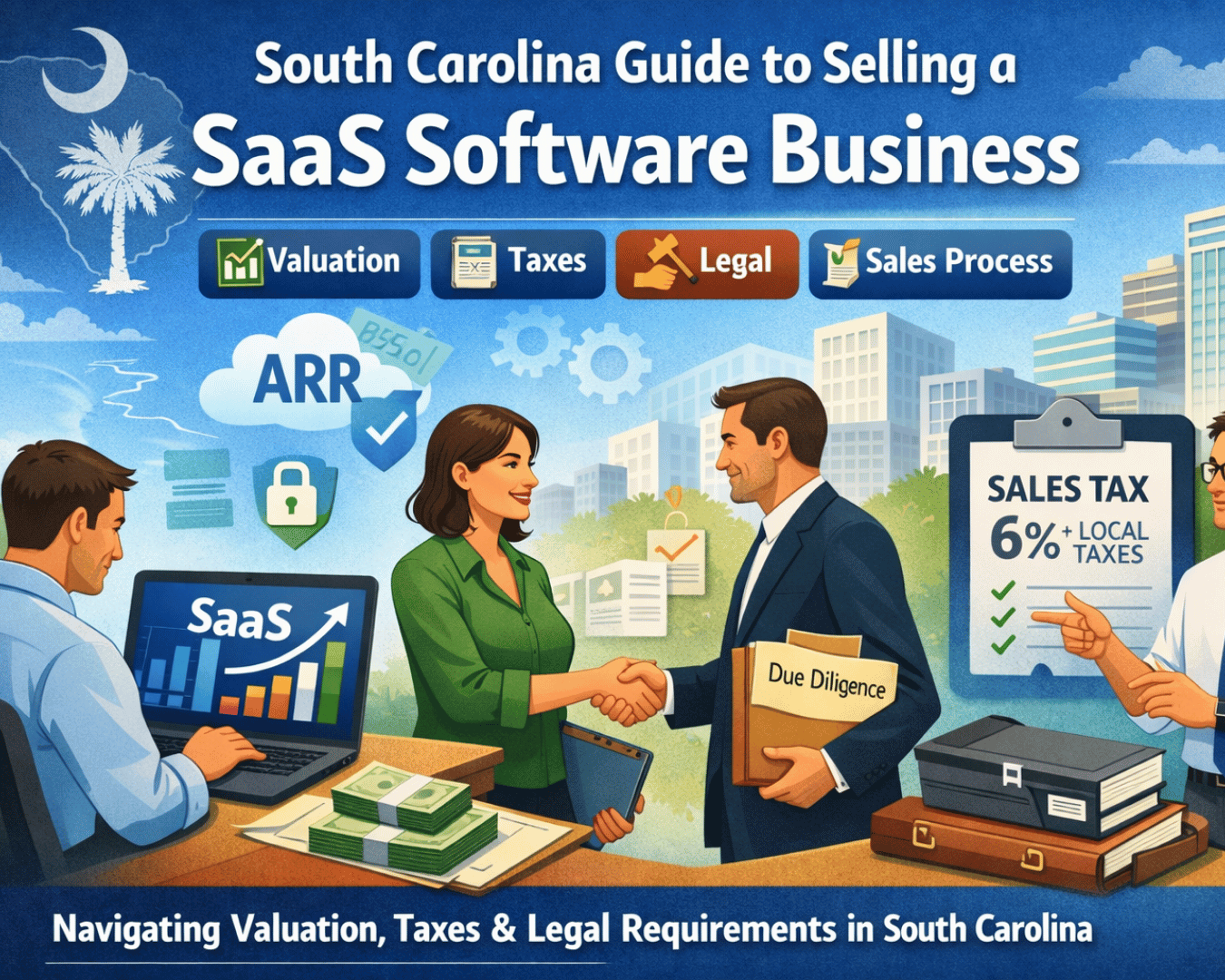







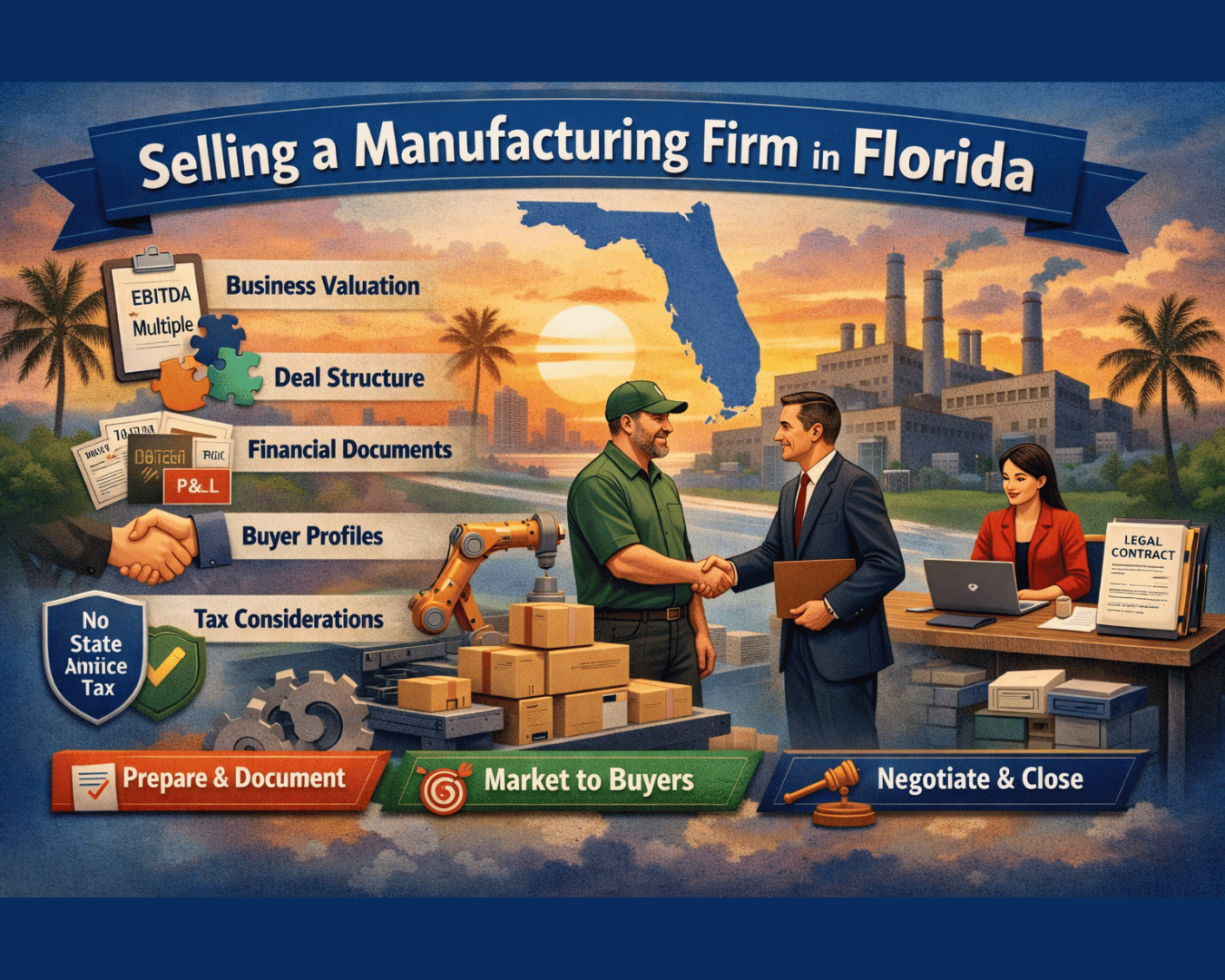
%20in%20a%20%2420M%20Sale..png)
%20vs.%20Conventional%20Loans%20for%20business%20acquisition.png)








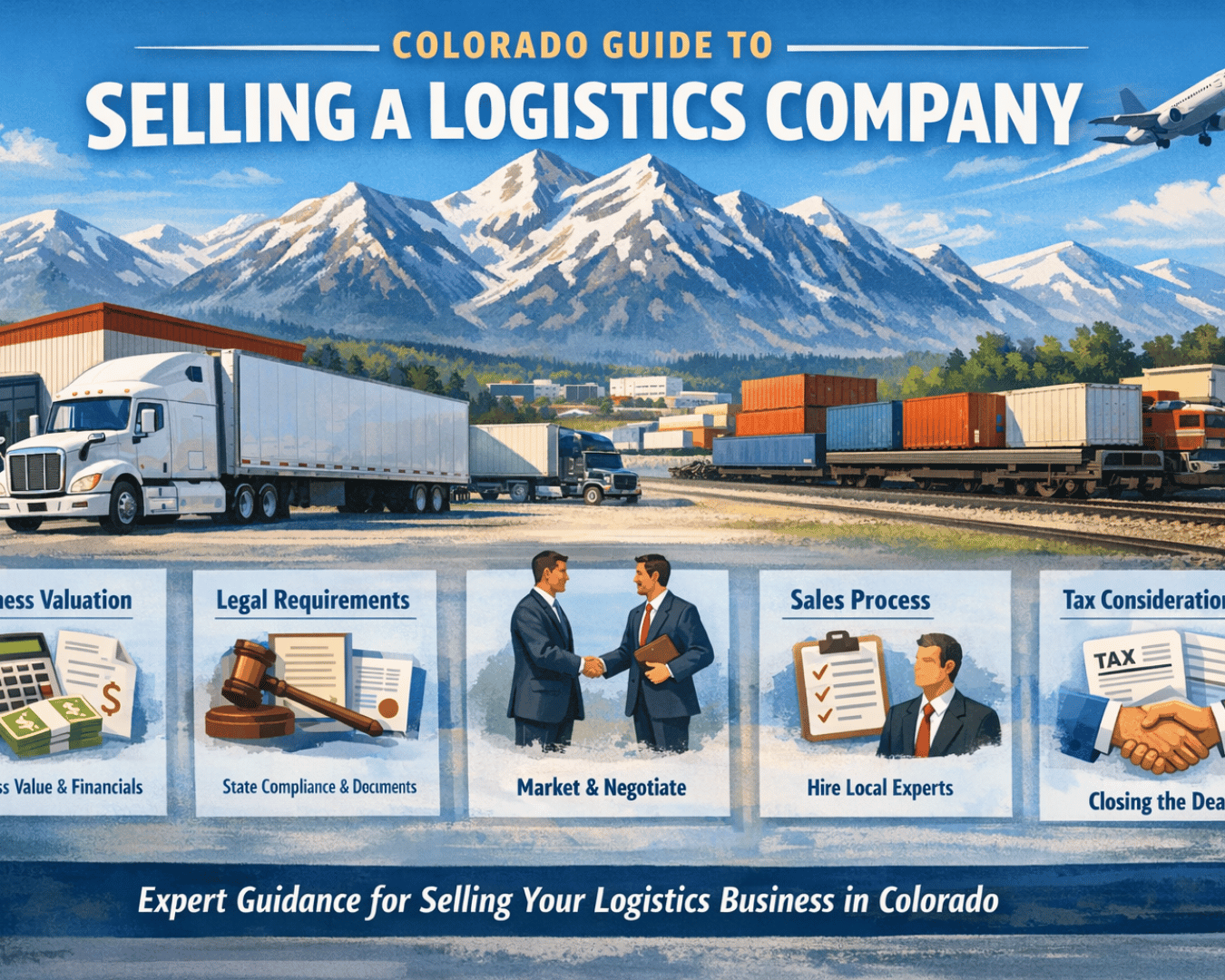













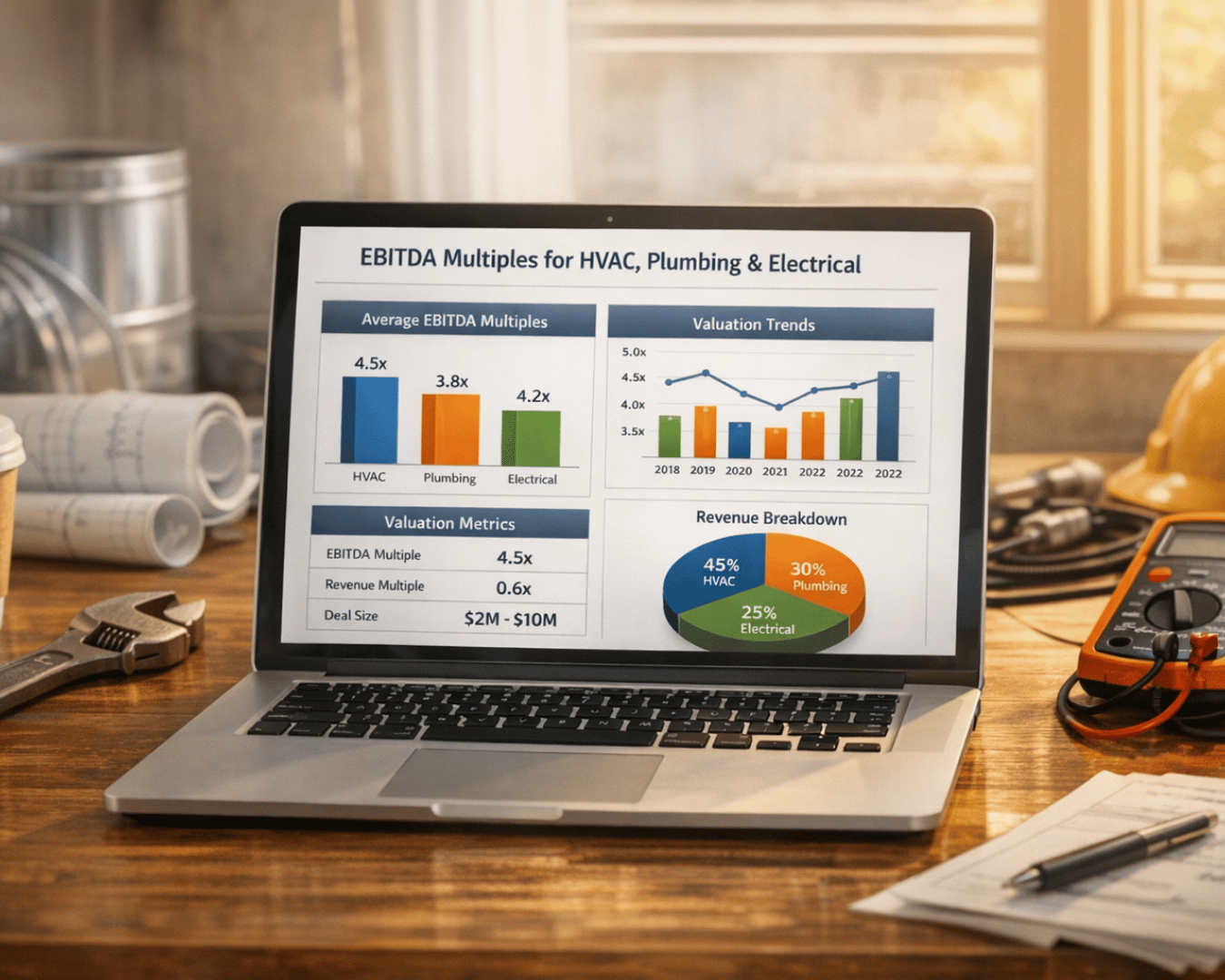
.png)


.png)
.png)

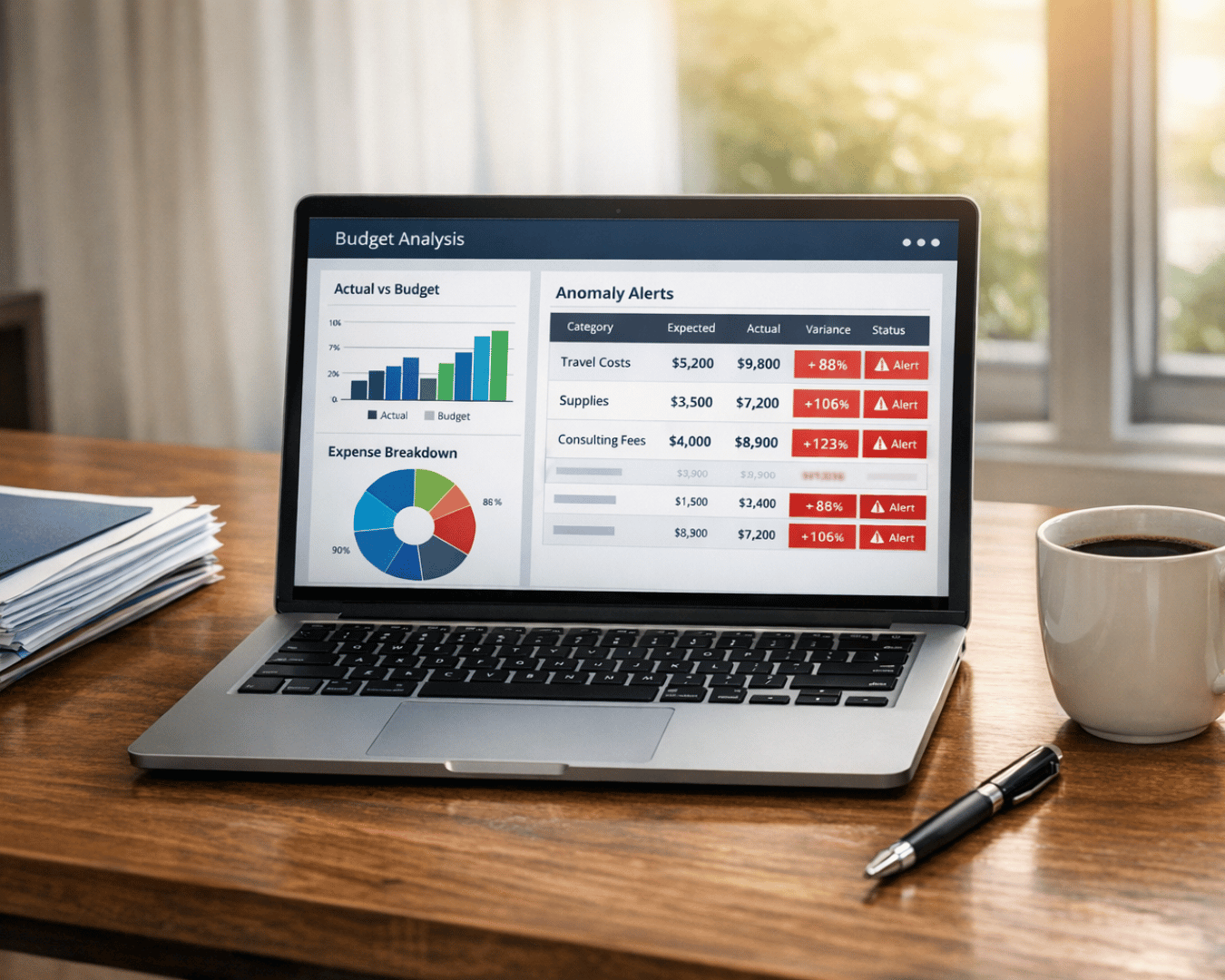
































.png)
